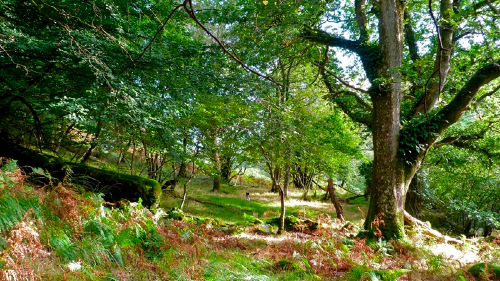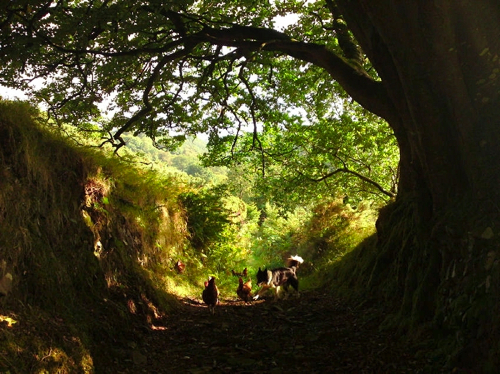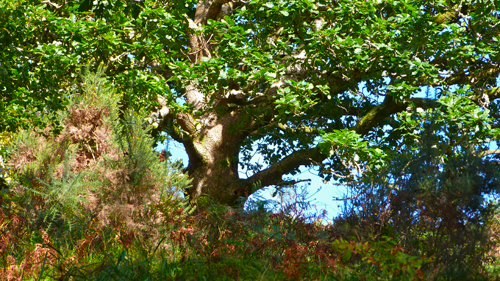Sign the petition: Keep Forestry Commission Wales Independent!
by Kath McNulty, National Manager for Wales, CONFOR
The Welsh Government is proposing to merge Forestry Commission Wales (FCW) with the Welsh arm of the Environment Agency (EA) and Countryside Council for Wales (CCW).
While there may seem to be an initial logic to this, on further examination it is clear that it could have a very damaging impact on forestry in Wales and lead to the destruction of the Forestry Commission across England and Scotland as well.
Confor has focused on the business impacts of this merger, but it will have implications much more widely, especially for the Forestry Commission.
Confor has led efforts to challenge the merger and sought to engage with ministers and civil servants. In practice we found that a few senior civil servants had made up their mind that this merger should take place and they have consistently frustrated our efforts to raise genuine concerns, misleading the minister about our level of involvement in consultations and providing misleading replies to questions we have raised, perhaps with the intention of fobbing us off and keeping us at bay until the minister decides on including FCW.
Confor’s view is that we can see the sense of bringing EAW and CCW together. However, the role and functions of FCW are very different.
FCW operates as an independent, fully devolved entity reporting to Welsh ministers, while benefiting from collaborative activity with the Forestry Commissions in England and Scotland. It also benefits from Westminster funded resources such as Forest Research, statistics and forest experts in Forestry Commission Great Britain – a cross-border entity.
Confor has sought to explain how this proposal will damage Welsh businesses and jobs, and damage the responsible, environmental management of Welsh forests.
The focus of the new organisation would overwhelmingly be on environmental regulation. Forestry is already delivering for the environment through reducing carbon and through the unparalleled recreational and biodiversity benefits provided by well-managed forests. However, forestry is a low-profit activity and needs to be made more financially sustainable – that is the opposite approach to EA and CCW who seek to regulate profitable businesses to reduce their negative impact on the environment. FCW has expertise and understanding of forestry in all its diversity, EA/CCW regulators have no such expertise.
FCW is the largest supplier of wood in Wales, supporting a wide range of local businesses. Alongside the private sector, FCW is transforming 20th century plantations into 21st century multi-purpose forests, while protecting jobs. Local businesses require confidence in future supplies to continue to invest and many have already indicated that a merger will fundamentally damage confidence. This will reduce income for Welsh forests.
The proposal to break FCW away from the rest of the Forestry Commission will almost certainly result in the total fracturing of the FC across Great Britain and result in it being merged with other agencies.
What is staggering to us, is that the civil servants’ own Business Case for merger points to the inclusion of FCW carrying significant financial threat. The business case is already a ‘best case’ scenario for merger rather than an objective analysis. It focuses on the benefits of merging FCW and skirts around any downsides. One particular paragraph highlights: “These figures do not include the substantial costs that would fall to Wales of organisational change to FCW which would be required if either England or Scotland withdrew from Forestry Commission GB”. Astoundingly this is then promptly ignored, in particular in the cost/benefit analysis.
These ‘substantial costs’ are not explained. Given that this is a best case scenario which already makes quite heroic assumptions about savings, it is clear that if the costs transpired it would totally undermine the case for merger and be a major financial blow to the new body.
In challenging the assumptions made by civil servants on including FCW, Confor questioned the loss of important services such as Forest Research which are currently paid for by Westminster. We were assured that a financial transfer would be made from Westminster, but no evidence has been found to substantiate this and when Confor wrote formally to ask for this evidence, the letter was ignored.
Confor understands that there is a UK Treasury protocol that stipulates that the department / country that instigates a change that leaves others with an increased cost will be liable to pay compensation to those parties. At the very least, Wales will need to pay compensation to England and Scotland to reflect that there is a fixed cost for functions like HR and IT that other parts of the UK must still pay for.
However, a far bigger cost will emerge if Scotland follows Wales’ lead and the GB part of the FC is broken up. As the instigator of the break-up, Wales could be asked to pay very significant costs. If so, this would completely dwarf any dubiously calculated efficiencies made by going ahead with the merger of FCW
The forestry sector in Wales is clear that this merger would damage forestry in Wales as well as England and Scotland.
We only have until THIS TUESDAY the 29th November! Please, don’t let a few civil servants have their way and sign the petition at:
Keep Forestry Commission Wales Independent!



























This all depends on how you look at it. I don’t think that the proposed change should be seen as a merger. Rather it is the formation of a new environmental body with a new outlook on forestry, conservation, habitiat protection and regulation.
Hi Hamish I agree with you in part but in this instance it is entirely wrong and forests and we working in them will suffer. If there was a general move nationwide in merging the NE with the FC this can only be good long term. But the EA?!? the functions and remit are so different and funding from a relatively sustainable base as by FCW’s work will have to spread across sectors which will concentrate on other very important needs such as flooding and more social problems rather than helping fund the defence we need to protect all the trees in all forests, towns and cities from disease. This merger does not look deeply into the situation and I fully support Confors stand and I am delighted to see Save Our Woods backing this stand. This is a finance issue and mergers are historically expensive, more expensive than the allocated budget in much the same as those homes on Grand designs which always go over budget it is inevitable. Funding for protecting our trees is vital and should be ringfenced centrally as with all other countries allowing it to become a devolved issue is daft and we know that councils trying to pay for frontline services will have to inevitably soak up the money if it is not ringfenced and are very capable of ensuring all the funding is siphoned.
Fc has no God given right to exist – there has to be a good reason and that reason, and why I’ve always supported an independent FC, is that forestry is so small were it merged it would simply dissappear into the maw of Government never to be seen again. For a Government that claims to dislike ‘big Government’ the enthusiasm for bigger and bigger organisations is bizarre – what you end up with is huge, self fullfilling, remote and unaccountable organisations with far too big a spread and far too tied up in their own machinations to care about the outside world at all. Natural Engalnd is a good example – whilst doing well on what has become its ‘core’ activity of managing schemes like HLS the old Countryside Commission people side has stalled almost completely. The National Trust is another – its countryside activities can be very unimpressive and the spread from art to country houses to woodland just looks too big.
On top of all this, the Welsh Government have chosen the very worst possible time when forestry issues, linked to the climate change/carbon agenda, are growing in importance and coming into sharp focus. There are big opportunities and risks for trees and forests – an outward, forward looking approach would not dilute and blur skills and management right now – not least because it takes forever for new bodies to settle. Early suggestions that NE would take a couple of years to settle were way off the mark – they are probably still not there and there’s no reason Wales will be any different.
The consultation paper which contains this proposal was published on the 9th February:
http://wales.gov.uk/docs/desh/consultation/120213sebconsulten.pdf
{ 1 trackback }